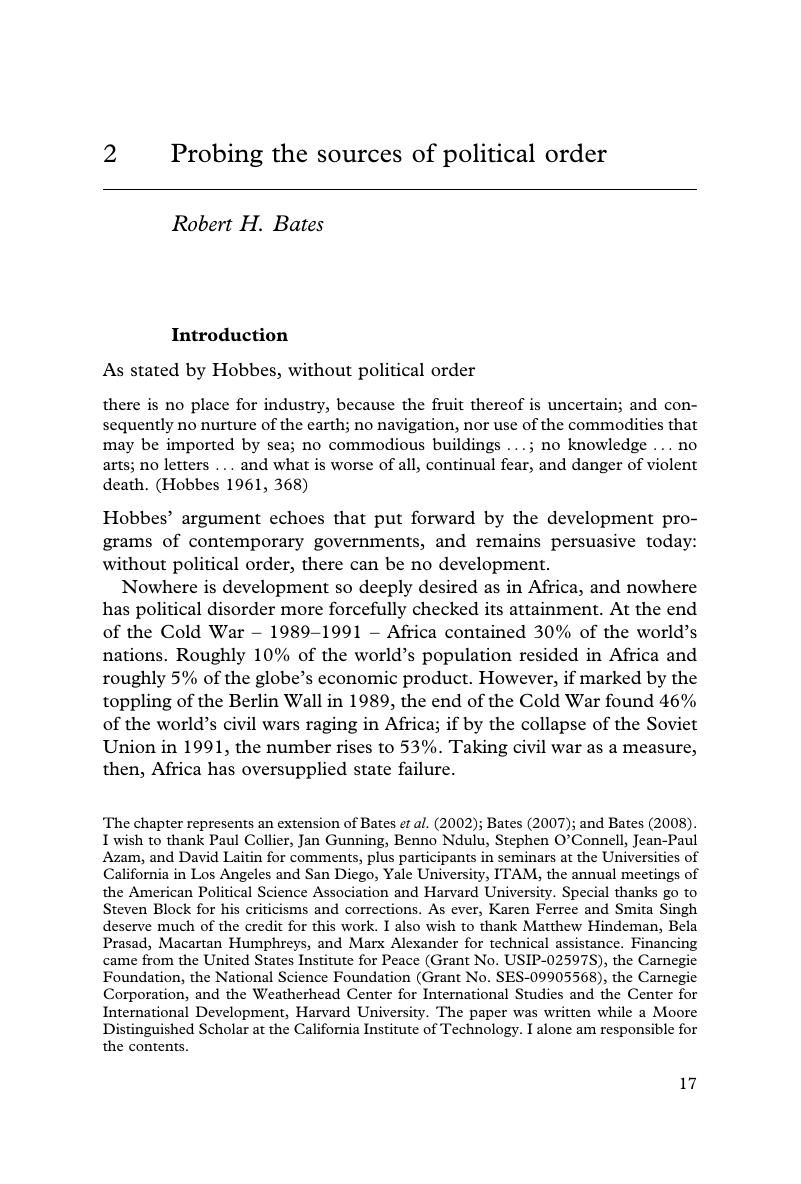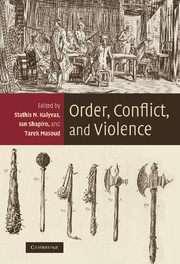Book contents
- Frontmatter
- Contents
- List of figures
- List of tables
- List of contributors
- Preface
- 1 Introduction: integrating the study of order, conflict, and violence
- Part 1 Creating, maintaining, and restoring order
- 2 Probing the sources of political order
- 3 Attaining social order in Iraq
- 4 Factors impeding the effectiveness of partition in South Asia and the Palestine Mandate
- 5 The social order of violence in Chicago and Stockholm neighborhoods: a comparative inquiry
- 6 Traditions of justice in war: the modern debate in historical perspective
- 7 Problems and prospects for democratic settlements: South Africa as a model for the Middle East and Northern Ireland?
- Part 2 Challenging, transforming, and destroying order
- Index
- References
2 - Probing the sources of political order
Published online by Cambridge University Press: 06 July 2010
- Frontmatter
- Contents
- List of figures
- List of tables
- List of contributors
- Preface
- 1 Introduction: integrating the study of order, conflict, and violence
- Part 1 Creating, maintaining, and restoring order
- 2 Probing the sources of political order
- 3 Attaining social order in Iraq
- 4 Factors impeding the effectiveness of partition in South Asia and the Palestine Mandate
- 5 The social order of violence in Chicago and Stockholm neighborhoods: a comparative inquiry
- 6 Traditions of justice in war: the modern debate in historical perspective
- 7 Problems and prospects for democratic settlements: South Africa as a model for the Middle East and Northern Ireland?
- Part 2 Challenging, transforming, and destroying order
- Index
- References
Summary

- Type
- Chapter
- Information
- Order, Conflict, and Violence , pp. 17 - 42Publisher: Cambridge University PressPrint publication year: 2008
References
- 4
- Cited by



